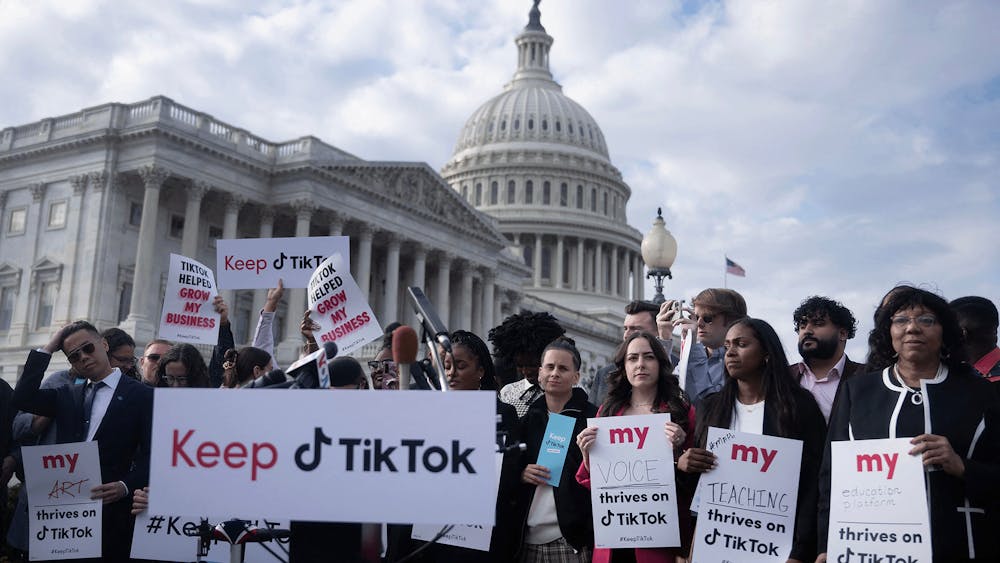The U.S. Supreme Court dropped a bombshell on Friday, ruling that the federal government has the authority to shut down TikTok in the United States. The viral video app, beloved by nearly half the country, is now on the chopping block.
This all started last April when President Joe Biden signed a bipartisan bill demanding TikTok either cut ties with its Chinese parent company, ByteDance, or face a complete shutdown in the U.S. TikTok, unsurprisingly, fought back, arguing in court that banning the app trampled on the free speech rights of both users and the company itself. But on January 10, the fight reached the highest court in the land, and now the verdict is in.
TikTok’s operations in the United States.
Starting January 19, Apple and Google will be required to yank TikTok from their app stores. Web-hosting services supporting TikTok must sever ties or risk facing massive fines—$5,000 per user who manages to access the app after the ban. Those penalties could quickly snowball into billions, effectively strangling the app’s operations.
For TikTok’s millions of users, the decision puts an end to years of speculation: The app’s days in the U.S. are numbered. The Supreme Court’s unsigned opinion didn’t mince words: “For more than 170 million Americans, TikTok has been a unique platform for expression, engagement, and community. But Congress has deemed divestiture necessary to address well-documented national security concerns tied to TikTok’s data collection and its relationship with a foreign adversary.” The justices made it clear that this ruling applies solely to TikTok, stressing its “narrow focus” and warning against interpreting it as a sweeping precedent.
Not everyone on the bench was on board with the ban. Justice Neil Gorsuch raised a red flag, calling the decision “paternalistic.” He argued that banning TikTok as a way to eliminate potential risks from China wasn’t the answer. “Isn’t counter-speech usually the remedy for problematic speech?” Gorsuch asked, suggesting that TikTok could include disclaimers warning users about possible content manipulation by the Chinese government. His concerns were quickly shot down by U.S. Solicitor General Elizabeth Prelogar, who compared the idea to a store posting a vague sign about cancer-causing products without actually identifying which items were harmful.

Lawmakers have long expressed fears that TikTok could be weaponized by the Chinese government to spy on Americans or spread propaganda. But critics of the ban point out that concrete evidence of such activities has yet to surface. TikTok’s executives insist that Congress’ demand to cut ties with ByteDance is nothing more than a symbolic gesture. And even if ByteDance wanted to sell, Chinese export control laws could block the deal, leaving TikTok stuck in limbo.
The Supreme Court’s ruling also sets up a bizarre handoff of responsibility. The Biden administration will leave enforcement of the law to President-elect Donald Trump, who takes office on Monday. Trump’s stance on TikTok is as murky as ever. While he unsuccessfully tried to ban the app during his first term, he’s since flipped, now claiming he wants to save it. His about-face has raised eyebrows, especially after reports that a billionaire hedge fund manager with a stake in ByteDance met with him recently.
In a post on his social media platform, Trump signaled he might delay the ban. “The Supreme Court decision was expected, and everyone must respect it. My decision on TikTok ban will be made in the not-too-distant future,” he wrote. TikTok’s legal team, meanwhile, is holding onto the slimmest hope that Trump will either pause or block enforcement once he’s in office. Under the law, the president can delay the ban for up to 90 days if progress is made toward a sale.
But TikTok’s prospects remain grim. Prelogar told the court that the ban might be the leverage the U.S. needs to force ByteDance and Chinese regulators to greenlight a sale. “When push comes to shove, these restrictions could be the jolt Congress intended,” she said.
As TikTok faces its final countdown in the U.S., the court’s decision underscores Congress’ growing willingness to tackle data privacy and security concerns head-on. Georgetown University law professor Anupam Chander likened the ruling to Bush v. Gore, a one-off case with outsized implications. “This is not meant to be a precedent,” Chander explained. “But it hands Congress enormous power to act on tech and privacy issues moving forward.”
Come Sunday, TikTok will officially go dark in the U.S. or will it? All eyes are on Trump, who holds the cards to either enforce or delay the ban. Either way, one thing is certain: TikTok’s fate is now tangled in a web of politics, national security fears, and corporate interests. Stay tuned.
Watch Video Below or Link







